

Christchurch Airport’s already busy international summer is about to get even busier, with Cathay Pacific bringing forward the start of its seasonal Hong Kong service by a full month, a move that will boost visitor numbers, trade links and global connections for the South Island.
From 3 November 2025, Cathay Pacific will operate three flights a week between Christchurch and Hong Kong, increasing to four weekly services at the peak of the summer season between December and February. Traditionally starting in December, the earlier launch reflects growing demand for travel to and from our region.
Cathay Pacific’s announcement comes hot on the heels of being named the world’s third-best airline by Skytrax, and its great news for travellers, exporters and tourism operators across the South Island.
Christchurch Airport’s Chief Executive Justin Watson says the earlier start and increased frequency highlights the strength of the South Island market.
“Cathay Pacific has been our valued partner for almost a decade. Their decision to start earlier this year builds on our longstanding relationship. It means more choice, more convenience, and stronger ties to Asia and beyond,” says Mr Watson.
The expanded schedule supports both tourism and trade, offering greater capacity for high-value exports like seafood and fresh produce to reach key Asian markets quickly via Hong Kong’s cargo mega-hub.

China Southern Airlines will return to Christchurch Airport for the summer season this November, and it's coming back bigger than ever, with a 26% boost in capacity and a longer operating window that includes the Chinese New Year.
The popular Guangzhou–Christchurch service resumes 1 November 2025, initially with five flights per week before ramping up to daily service from 18 December through to 3 March 2026, perfectly timed for peak summer and Lunar New Year celebrations. More than 60,000 seats across business, premium economy and economy cabins will be available, giving South Islanders greater access to China and beyond.
This milestone year for China Southern marks a decade since it first touched down in Christchurch operating a single charter flight to prove our market back in 2015. Since then, the airline has flown over half a million passengers to the South Island.
For local exporters, the return of China Southern means a faster route for high-value produce, cherries, salmon, and other fresh goods, straight into the Chinese market and onto plates across Asia and Europe.
“Every flight carries more than just passengers,” says Christchurch Airport’s GM Aeronautical Development, Gordon Bevan. “The belly of the aircraft delivers huge value for South Island businesses getting their premium goods to global markets.”
China Southern’s vast network via Guangzhou connects Kiwis to China and offers easy onward travel to hotspots like Thailand, Vietnam, Turkey and Nepal or further to destinations across China Southern’s Asia and Europe network.
The South Island is also home to over 20,000 Chinese residents, most of which live in the Christchurch area.
Ali Adams, Chief Executive, ChristchurchNZ says,
“China Southern’s service means so much to our city, especially during Chinese New Year. For so many in our Chinese community it’s an important bridge home. It’s a chance to be with loved ones, honour cherished traditions, and feel close to family, even across great distances. It also deepens the cultural and economic bonds between Christchurch and China in a truly meaningful way.”
China is New Zealand’s third-largest tourism market, with nearly 170,000 holidaymakers visiting last year. The South Island gains directly from these high-value travellers, who stay longer and venture further.

Sarah Ottrey, Christchurch Airport Board Chair, and Prime Minister Christopher Luxon have signed an agreement between Christchurch Airport and Shanghai Airport Authority marking a new chapter in cooperation between the two aviation gateways.
The signing took place as part of the current New Zealand Trade Mission to China which is visiting Shanghai and Beijing to seek to secure and grow trade and economic opportunities.
The MOU aims to strengthen strategic ties, encourage direct connectivity and support growing demand for trade and tourism between the South Island and China who are New Zealand’s largest trading partner.
The wider trade mission is focusing on unlocking new economic opportunities in tourism, education, and premium food and beverage, all vital to New Zealand’s future growth.
Sarah’s appointment to the delegation alongside 27 other NZ business leaders reflects both her leadership at Christchurch Airport and her deep understanding of New Zealand’s strategic relationship with China. As a member of the NZ China Business Council, she plays an active role in shaping dialogue between the two countries, offering insights into how trade, tourism and investment can benefit both sides.
Prime Minister Christopher Luxon says “I’m delighted to have Sarah join our trade delegation to China. Her deep knowledge of tourism, considerable international delegation experience and her leadership at Christchurch Airport, make her a valuable voice for the South Island. She brings a strong regional perspective to the table, which is vital as we look to strengthen our economic and people-to-people ties with China.”
Direct air connectivity is critical to trade and tourism growth and Christchurch Airport plays a key role in linking China to the South Island. In 2024 Chinese visitors spent NZ$1.1 billion and two-way trade with China reached NZ$38 billion1.
Sarah Ottrey says the Trade Mission is an opportunity to build on the foundations already in place. “The New Zealand–China relationship is vital to our regions and our economy. Through the NZ China Business Council, I’ve seen how trust and partnership create real momentum, and this mission gives us a chance to turn that into outcomes. Direct links through Christchurch Airport are one way we can bring people, goods and ideas together.”
The following week from 23 June a Christchurch Airport delegation will be in China hosting its industry leading Kia Ora South events celebrating its 11th year in market. The events are a platform to promote tourism and education travel from China to New Zealand. Traveling from New Zealand is a delegation of 25 industry leaders which is undertaken in conjunction with Tourism New Zealand and the Ministry of Foreign Affairs and Trade.

China's valid domestic invention patents reached 4.97 million as of May this year, underscoring the robust innovative capacity of the country's innovators and fostering the growth of new quality productive forces, according to the country's top intellectual property (IP) regulator on Friday.
China is rapidly evolving from a major IP importer to a leading global creator, according to the China National Intellectual Property Administration (CNIPA).
Guo Wen, spokesperson for CNIPA, highlighted the agency's efforts to address the real-world needs of innovators by refining patent application evaluation standards, raising application quality, and streamlining examination processes through a demand-driven review system.
"Between January and May, CNIPA processed 84,000 priority patent examinations, fast-tracked 116,000 applications, deferred 9,300 reviews and conducted 13 batches of centralized examinations," Guo said.
"This has resulted in the grant of high-value patents that strengthen industrial competitiveness, safeguard national industrial security, and drive sector-wide upgrades," she said.
To further elevate patent quality, CNIPA has enhanced rapid collaborative protection mechanisms and sharpened service precision. The agency operates 77 national IP protection centers, offering one-stop IP services.

Invest Hong Kong (InvestHK) hosted a reception on June 24 for new establishments of international and Mainland businesses in Hong Kong. An occasion to thank businesses for their trust and support in Hong Kong's business environment, the event attracted nearly 350 senior representatives from companies worldwide. The Chief Executive, Mr John Lee, officiated at the ceremony, reaffirming Hong Kong's role as a "super connector" and "super value-adder" connecting the Mainland and the rest of the world. He also encouraged companies to seize the myriad opportunities in Hong Kong to expand globally.
In his keynote speech, Mr Lee said that under the "one country, two systems" principle, Hong Kong enjoys the advantages of being connected to both the Mainland and the rest of the world, offering an open and easy place to do business, a long and established tradition of the rule of law, and a simple and low tax regime. Mr Lee highlighted that as the world's freest economy and one of the world's top three international financial centres, Hong Kong's global competitiveness has risen two places to rank third globally in the World Competitiveness Yearbook 2025, marking the second consecutive year of such advancement from its seventh place two years ago. In the recent World Investment Report released by the United Nations Trade and Development, the city has moved up to the third place in terms of foreign direct investment inflows. Mr Lee said that the Government will continue to co-ordinate the practical needs of enterprises across different sectors, enabling them to develop their business overseas through Hong Kong's multinational supply chain management centre and explore new strategic blue oceans for development.
This year, the reception not only expressed appreciation to the attending companies for their contributions to Hong Kong, but was also held to mark a significant milestone - the 25th anniversary of InvestHK. The department premiered its 25th anniversary video, celebrating its achievements and economic impact over the past quarter century, in the presence of Mr Lee; the Acting Secretary for Commerce and Economic Development, Dr Bernard Chan; the Permanent Secretary for Commerce and Economic Development, Ms Maggie Wong, and other distinguished guests.
The Director-General of Investment Promotion, Ms Alpha Lau, thanked InvestHK's clients, partners, stakeholders, and other government bureaux and departments for their staunch support. She said, "For a quarter-century, we have helped international companies from around the world establish, grow, thrive here and beyond, to Mainland China and Asia. We are also the launchpad for Mainland companies to go global. InvestHK actively promotes two-way foreign direct investment between China and the rest of the world, using Hong Kong as a platform. Looking forward, we will continue to connect markets, empower growth, and create long-term value through two-way investment."

In the year ended March 2025 New Zealand exported NZ$1.62 billion (~HK$7.25 billion) of total goods and services to Hong Kong and imported NZ$485.23 million (~HK$2.2 billion), representing a trade balance of NZ$1.13 billion (~HK$5.1 billion) and a total trade value of NZ$2.1 billion (~HK$9.5 billion).
This represented 1.5% of all exports of total goods and services in this time period and 0.4% of imports.
For trade in total goods and services Hong Kong ranked 13 of 237 for highest export value, 27 of 239 for highest import value, and 19 of 243 for highest total trade value.

Associate Finance Minister David Seymour welcomes the passing of first reading for a Bill to make it easier for New Zealand businesses to receive new investment, grow and pay higher wages.
The Overseas Investment (National Interest Test and Other Matters) Amendment Bill has passed its first reading in Parliament today (24 June 2025).
“New Zealand has been turning away opportunities for growth for too long. Having one of the most restrictive foreign investment regimes in the OECD means we’ve paid the price in lost opportunities, lower productivity, and stagnant wages. This Bill is about reversing that,” says Mr Seymour.
“In 2023, New Zealand’s stock of foreign direct investment sat at just 39% of GDP, far below the OECD average of 52%. Investors are looking elsewhere, so we’re showing them why New Zealand is the best place to bring their ideas and capital.
“International investment is critical to ensuring economic growth. It provides access to capital and technology that grows New Zealand businesses, enhances productivity, and supports high paying jobs.
“New Zealand’s productivity growth has closely tracked the amount of capital workers have had to work with. Our capital-to-labour ratio has seen very little growth in the last 10 years, averaging approximately 0.7 per cent in measured sectors annually. That’s compared to growth in the capital-to-labour ratio in measured sectors of around 2.2 percent in the previous 10 years. Unsurprisingly, productivity growth averaged 1.4 percent a year between 1993 and 2013, but only 0.2 percent between 2013 and 2023.
“The Bill will consolidate and simplify the screening process for less sensitive assets, introducing a modified national interest test that will enable the regulator to triage low-risk transactions, replacing the existing benefit to New Zealand test and investor test. If a national interest risk is identified, the regulator and relevant Minister will have a range of tools to manage this, including through imposing conditions or blocking the transaction.”
The current screening requirements will stay in place for investments in farmland and fishing quota.
“For all investments aside from residential land, farmland and fishing quota, decisions must be made in 15 days, unless the application could be contrary to New Zealand’s national interest. In contrast, the current timeframe in the Regulations for the benefit test is 70 days, and the average time taken for decisions to be made is 30 days for this test,” says Mr Seymour.
“High-value investments, such as significant business assets, existing forestry and non-farmland, account for around $14 billion of gross investment each year. We’re removing the barriers for these investments so that number can grow.
“The Ministerial Directive Letter will be updated to provide guidance on which assets should undergo further scrutiny and which risks may be contrary to New Zealand’s national interest. This guidance will provide a degree of certainty to investors and support a flexible regime which is responsive to new and emerging risks.
“The updated system brings New Zealand up to speed with other advanced economies. They benefit from the flow of money and the ideas that come with overseas investment. If we are going to raise wages, we can’t afford to ignore the simple fact that our competitors gain money and know-how from outside their borders.
“These reforms cut compliance costs, reduce processing times, and restore confidence that New Zealand is open for business. The Bill will be passed by the end of the year and the new regime implemented by early 2026. A new Ministerial Directive Letter will come into force at the same time.”


Parliament has passed legislation to formally establish Invest New Zealand, clearing the way for the new investment attraction agency to begin operations on 1 July 2025.
“This marks a major step in the Government’s plan to grow the economy by attracting more international capital, businesses and talent into New Zealand,” Trade and Investment Minister Todd McClay says.
“Invest New Zealand will have a clear commercial focus—working directly with global investors to unlock opportunities that create jobs, boost innovation, and lift our long-term productivity.”
Budget 2025 committed $85 million over four years to support the agency’s establishment as an autonomous Crown entity.
Invest New Zealand will:
A private sector advisory group, chaired by Rob Morrison, has played a key role in designing the agency’s framework and will continue to provide strategic advice as the agency scales up.
“Invest New Zealand will act as a bridge between global capital and New Zealand’s economic potential,” Mr McClay says.
“It’s about making it easier to do business here—cutting red tape, speeding up decision-making, and targeting investment that delivers long-term benefits for the country.”
The agency will be up and running 1 July.

Market soundings with international and local toll road investors, operators and financiers has begunnext week as the next step in exploring how toll concessions could help fund, build and operate important road infrastructure, Infrastructure and Transport Minister Chris Bishop says.
“The Government is focused on improving high-quality road infrastructure to boost economic growth and ensure people and freight can travel efficiently and safely. To accelerate the delivery of vital transport projects, we’re looking into alternative funding and financing methods, including the use of toll concessions.
“New Zealand currently has three toll roads in operation in Auckland and Tauranga, with three more in various stages of construction or planning. The Government has also set expectations in the Government Policy Statement on Land Transport 2024 that other roads are considered for tolling in future, including all future Roads of National Significance.
“Although existing toll roads are currently managed by the NZ Transport Agency, the Government is, for the first time, considering private sector involvement in the operation of toll roads. This includes the potential use of toll concessions as part of a broader approach to infrastructure delivery.
“A toll concession involves a private entity—known as a concessionaire—being given the right to manage and maintain a toll road for a specified time. During this period, they collect toll revenue to recover costs and earn a return. In exchange, the Government receives an upfront capital payment which can be used to fund additional road projects and potentially deliver them years earlier than would otherwise be feasible.
“Concessions may apply to existing toll roads to operate and maintain a road, or be integrated into the development of new roading infrastructure. In the latter case, a private partner could be contracted to design, construct, operate, and maintain the road, and recoup operations and maintenance costs through toll collection.
“There are several advantages to toll concessions: they can provide immediate capital that can be used to deliver more infrastructure projects sooner, draw on private sector expertise and innovation in areas like construction and tolling technology, and can help government to share and manage risks more efficiently.
“It is important to note that the Crown continues to own the toll road under a concession arrangement. The private operator manages the road for the duration of the concession, after which control reverts back to a government agency.
“Next week, my officials will begin market sounding discussions with toll road investors, operators and financiers to test opportunities for private firms to operate and maintain toll roads through concessions. The officials will meet with a cross-section of market participants – from international toll road operators to domestic and international investors and iwi – to get a range of perspectives on the opportunities available. If work on concessions is taken forward, there will be wider opportunities to be involved in any transactions stage.
“Market sounding discussions will give us deeper insight into whether toll road concessions are viable here, under what circumstances, and the different ways they could be structured and phased.
“The Government will test concession opportunities on:
New Zealand’s existing three toll roads – the Northern Gateway in Auckland, and Takitimu Drive and Tauranga Eastern Link in Tauranga
Three roads in development that Cabinet has confirmed will be tolled – Penlink, Takitimu North Link, and Ōtaki to North of Levin
All future Roads of National Significance
“Officials will also seek to understand the extent to which concessions could support private investment and involvement in delivering other future projects beyond the immediate RoNS programme, including an alternative Waitematā Harbour crossing, where the significant scale of such projects and investment needed means different delivery approaches may deliver greater value for New Zealanders.
“The Ministry of Transport has appointed global investment bank, Citi, as its financial and commercial advisor to support this market sounding process.
“Citi has extensive experience advising on toll road concessions overseas and we’re pleased to have access to their expertise, connections and insights to ensure we run a high calibre market sounding process.
“The insights we get from the market sounding will inform my decisions about whether and how to take toll concessions forward, including which ones are viable and have value. I look forward to hearing what the market has to say,” Mr Bishop says.
The Government expects to make decisions on toll road concessions later this year.

Important progress in the fight against online financial scams has been made with the launch of a new initiative between government, industry and consumer groups, Commerce and Consumer Affairs Minister Scott Simpson says.
“It is unacceptable that so many Kiwis are swindled by scammers every day,” Mr Simpson says.
“Some reports suggest scams cost the economy up to NZ$2 billion annually, and it is crucial we get on top of the problem.
“That is why I’m pleased to announce the New Zealand Anti-Scam Alliance – a new national effort that seeks to reduce the number of Kiwis falling victim to online financial scams.
“Up until this point New Zealand’s anti-scam efforts have developed in an ad-hoc way and suffered from a lack of coordination. We frequently hear that real-time information on scams is sourced from different areas across government and the private sector, making for a fragmented, and often, slow response.
“The Alliance addresses this by establishing a formal structure for government agencies, banks, telecommunications companies, digital platforms sectors, and consumer groups to share data about scams and shut them down in real-time.
“By better coordinating our efforts across industry and government, we should be able to seal up the cracks that scammers are slipping through.
“The Alliance has also agreed to take coordinated action to update industry codes, strengthen consumer protections and educate Kiwis about how to protect themselves from scams.
“The Anti Scam Alliance represents a significant step forward and is the first in a series of actions that will strengthen New Zealand’s scam defences. However, there is more work to do.
“The Government is also exploring other initiatives to support this work, including amending the Fair Trading Act so that government and industry can have the confidence to proactively share scam-related intelligence and collaborate on disruption initiatives without breaching competition or privacy laws.
“There is no silver bullet to address scams, but by working together across sectors to disrupt scams, we can significantly shift the dial.”

Science, Innovation and Technology Minister Dr Shane Reti has launched New Zealand’s first AI Strategy to boost productivity and grow a competitive economy.
“AI could add NZ$76 billion to our GDP by 2038, but we’re falling behind other small, advanced economies on AI-readiness and many businesses are still not planning for the technology,” says Dr Reti.
“We must develop stronger Kiwi AI capabilities to drive economic growth, and this Strategy sends a strong signal that New Zealand supports the uptake of AI.
“The Government’s role in AI is to reduce barriers to adoption, provide clear regulatory guidance, and promote responsible AI adoption.
“We’re taking a light-touch approach, and the Strategy sets out a commitment to create an enabling regulatory environment that gives businesses confidence to invest in the technology.
“Private sector AI adoption and innovation will boost productivity by unlocking new products and services, increasing efficiency, and supporting better decision-making.
“New Zealand’s strength lies in being smart adopters. From AI-powered precision farming techniques to diagnostic technology in healthcare, Kiwi businesses can tailor AI to solve our unique challenges and deliver world-leading solutions.”
The Strategy aligns with OECD AI Principles and the Government will continue to work with international partners on global rules to support the responsible use and development of AI.
“New Zealanders will need to develop trust and give social licence to AI use, so the Government has also released Responsible AI Guidance to help businesses safely use, develop and innovate with the technology,” says Dr Reti.
The Government will use existing legislation and regulations such as privacy, consumer protection and human rights, to manage risk and privacy concerns.

The Small Unmanned Aircraft (Amendment) Order 2025 and the Air Navigation (Hong Kong) Order 1995 (Amendment) Order 2025 will come into effect tomorrow (July 18) to facilitate the development of the low-altitude economy.
The amendments to the Small Unmanned Aircraft (SUA) Order (Cap. 448G) serve to extend the existing regulatory regime to cover SUA weighing over 25 kilograms but not exceeding 150kg. Relevant guidance documents including the updated Safety Requirements Document and Advisory Circulars will be available on the Civil Aviation Department (CAD)'s website (www.cad.gov.hk/english/sua_new.html) from July 18.
Meanwhile, the amendments to the Air Navigation (Hong Kong) Order 1995 (Cap. 448C) serve to facilitate the trials of various unconventional aircraft in Hong Kong. New articles are added under Cap. 448C to empower the Chief Executive to permit the trials of unconventional aircraft under specified conditions. Practical guidance in respect of the trials of unconventional aircraft will be published on the CAD's website (www.cad.gov.hk/english/uca_trials.html) on July 18.
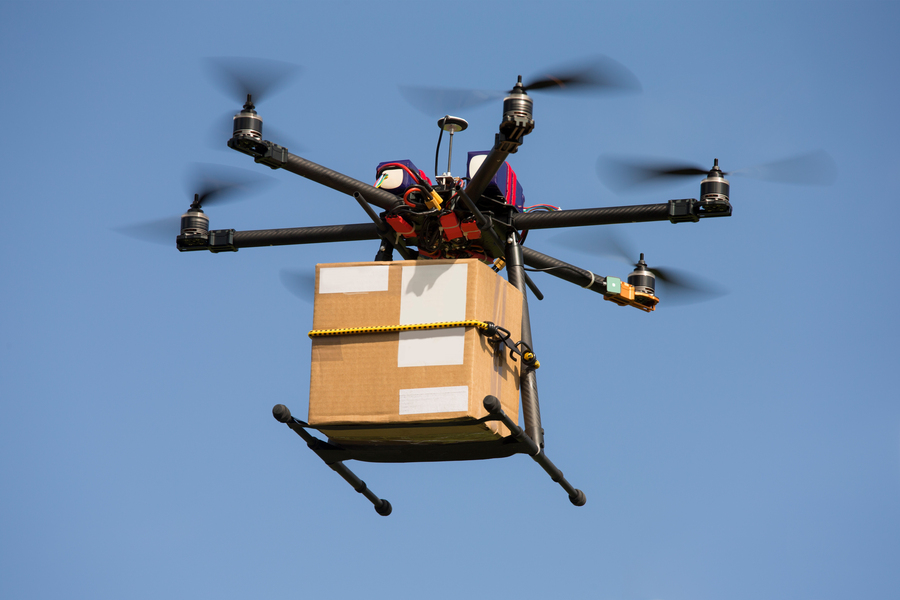
The Government today (May 12) commences a public consultation on updating Hong Kong's Biodiversity Strategy and Action Plan (BSAP). The two-month consultation period will end on July 11.
The Government is committed to conserving Hong Kong's natural heritage, safeguarding biodiversity and achieving sustainable development. To complement the country's implementation of the United Nations' Convention on Biological Diversity, the Government launched the first phase of the BSAP in 2016, proposing a total of 67 specific measures in four main areas. With the concerted efforts of various sectors of the community, stakeholders and the Government, the first phase of the BSAP has achieved fruitful outcomes.
A spokesman for the Agriculture, Fisheries and Conservation Department (AFCD) said, "Biodiversity is an integral part of our daily lives and is intricately linked to the prosperity of our city and the well-being and quality of life of our citizens. Hong Kong has extraordinary biodiversity relative to a city of its size. To strike a balance between meeting development needs and conserving biodiversity, all sectors of the community should work together to ensure sustainable development."
To update the strategic areas and actions for the next phase of the BSAP, the Government launched a public consultation today to gather views from various sectors of the community. Taking into account the latest global and national biodiversity initiatives, including the Kunming-Montreal Global Biodiversity Framework and the China National Biodiversity Conservation Strategy and Action Plan (2023-2030), local circumstances and conditions, and views received during the consultation period, the Government will complete updating the BSAP later this year to step up the work on biodiversity conservation and sustainable development, and to support the latest global and national initiatives.
The consultation document proposes four strategic areas:
(1) Nature conservation: Building on years of dedicated efforts and the implementation of the first phase of the BSAP, the Government has already implemented numerous conservation measures. The Government proposes to continue implementing nature conservation measures to ensure the preservation of healthy ecosystems, for example, by exploring the implementation of area-based conservation measures, restoring degraded or declining habitats, and strengthening the protection of species of concern;
(2) Deepening mainstreaming: The first phase of the BSAP has raised the awareness of biodiversity across society. The Government proposes to further promote the adoption of biodiversity-friendly practices across all sectors of society, for example, through mobilising resources to support the sustainable use and conservation of natural resources, encouraging various sectors to leverage biodiversity opportunities, supporting communities to develop stewardship responsibilities towards nature, etc, with a view to building a prosperous city that coexists harmoniously with nature;
(3) Capacity building: The Government has continued to invest in biodiversity-related knowledge products and research projects, including the establishment of the Hong Kong Biodiversity Information Hub and setting up various funding schemes. The Government proposes to continue to strategically invest resources in promoting research and nurturing talent, for example, by enabling innovative and high-quality research, promoting knowledge transfer and talent development, strengthening institutions to support capacity building, etc, for enhancing individual and collective capacities and empowering everyone to actively contribute to the conservation of biodiversity; and
(4) Collaborative partnering: Hong Kong has a unique set of strengths, including international talent, a diverse cultural environment and close connections with international networks. The Government proposes to foster a culture of collaboration to extend the benefits of nature conservation to broader communities, for example, by jointly taking actions with cross-boundary and international partners, promoting exchange of experience and information on various fronts, encouraging cross-disciplinary collaborations, etc.

China's civil aviation regulator has announced a ban on power banks without a valid 3C certification, those with unclear 3C labels, or those subject to product recalls from being carried on domestic flights, as part of efforts to enhance aviation safety.
The Civil Aviation Administration of China said in an emergency notice that the new regulation will take effect starting Saturday.
The move comes amid a rising number of incidents involving fires and smoke caused by lithium battery products, including power banks, on board aircraft this year. Authorities said that in recent months, several leading power bank manufacturers have issued recalls for multiple product batches due to battery cell safety risks.
China's top market regulator, the State Administration for Market Regulation, has also revoked or suspended 3C certifications for several power bank and battery cell manufacturers, indicating potential quality and safety hazards among portable chargers commonly carried by passengers. These risks have posed increasing challenges to the safe operation of civil aviation, the CAAC said.
To further mitigate these risks, the CAAC will implement stricter management in line with international standards set by the Technical Instructions for the Safe Transport of Dangerous Goods by Air, the notice said.
The regulator urged airlines and relevant aviation authorities to strengthen passenger communication, enhance inspection protocols, optimize services, and refine emergency response plans to support the new policy.
Airlines and their agents should promote awareness about carrying substandard power banks and encourage passengers to comply with the new safety rules, the notice said.
Airports are also required to intensify safety messaging by leveraging broadcasting systems, digital displays and other channels to warn travelers about the risks and to publicize the updated regulations in key areas such as security checkpoints and check-in counters.

The New Zealand Government’s interim financial statements for the 11 months to 31 May 2025 showed slightly better-than-forecast results.
The OBEGALx deficit was NZ$7.9 billion, NZ$0.2 billion below forecast.
Core Crown tax revenue exceeded expectations, while expenses were marginally higher. Net core Crown debt was NZ$180.3 billion (41.8% of GDP), in line with forecasts.
Gross debt was NZ$202.5 billion, NZ$7.2 billion below forecast. Net worth stood at NZ$184.3 billion (42.7% of GDP), broadly matching projections.
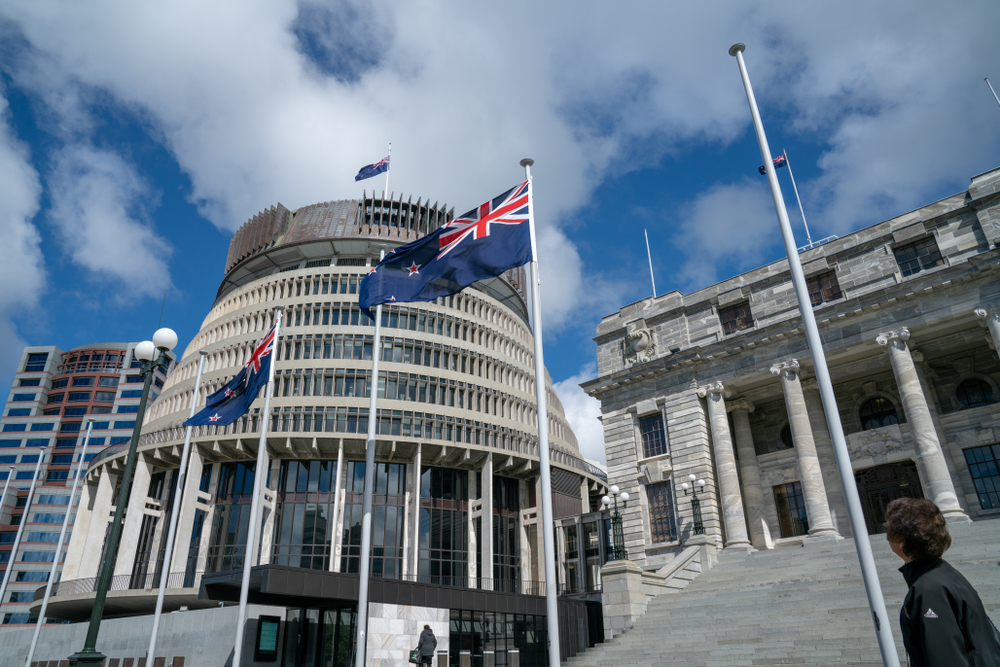
Important progress in the fight against online financial scams has been made with the launch of a new initiative between government, industry and consumer groups, Commerce and Consumer Affairs Minister Scott Simpson says.
“It is unacceptable that so many Kiwis are swindled by scammers every day,” Mr Simpson says.
“Some reports suggest scams cost the economy up to $2 billion annually, and it is crucial we get on top of the problem.
“That is why I’m pleased to announce the New Zealand Anti-Scam Alliance – a new national effort that seeks to reduce the number of Kiwis falling victim to online financial scams.
“Up until this point New Zealand’s anti-scam efforts have developed in an ad-hoc way and suffered from a lack of coordination. We frequently hear that real-time information on scams is sourced from different areas across government and the private sector, making for a fragmented, and often, slow response.
“The Alliance addresses this by establishing a formal structure for government agencies, banks, telecommunications companies, digital platforms sectors, and consumer groups to share data about scams and shut them down in real-time.
“By better coordinating our efforts across industry and government, we should be able to seal up the cracks that scammers are slipping through.
“The Alliance has also agreed to take coordinated action to update industry codes, strengthen consumer protections and educate Kiwis about how to protect themselves from scams.
“The Anti Scam Alliance represents a significant step forward and is the first in a series of actions that will strengthen New Zealand’s scam defences. However, there is more work to do.
“The Government is also exploring other initiatives to support this work, including amending the Fair Trading Act so that government and industry can have the confidence to proactively share scam-related intelligence and collaborate on disruption initiatives without breaching competition or privacy laws.
“There is no silver bullet to address scams, but by working together across sectors to disrupt scams, we can significantly shift the dial.”

The Secretary for Commerce and Economic Development, Mr. Algernon Yau, arrived in Auckland on 12 August to continue his official visit to New Zealand.
Upon arrival, Mr. Yau held a lunch meeting with representatives from New Zealand Winegrowers to gain insights into the latest developments in the local wine industry and explore opportunities for deeper collaboration between Hong Kong and New Zealand in wine and liquor promotion.
Mr. Yau highlighted Hong Kong’s strengths as a global hub for wine and liquor trading, including its recent introduction of a two-tier liquor duty system aimed at encouraging the trade and auction of premium spirits. This strategic policy shift reflects Hong Kong’s commitment to enhancing its role as an international trading center and fostering a more business-friendly environment for both local and overseas enterprises—including those from New Zealand.
Between 2013 and 2023, spirit imports in Asia surged by nearly 80%, outpacing the global growth rate of 42% over the same period. The Mainland has emerged as one of the world’s largest importers of spirits. Mr. Yau emphasized that, under the "one country, two systems" framework, Hong Kong’s strategic location and unique advantages make it an ideal two-way platform for New Zealand’s wine and liquor industry to access the rapidly expanding Asian and Mainland markets.
In the afternoon, he met with representatives of the New Zealand China Council and Simon Bridges, Chief Executive of the Auckland Business Chamber (pictured left). He shared updates on Hong Kong’s latest developments, including the Northern Metropolis initiative and new measures to attract global enterprises and investment. The discussions also focused on enhancing business cooperation between Hong Kong and New Zealand, and leveraging Hong Kong’s gateway role to access the vast opportunities within the Guangdong-Hong Kong-Macao Greater Bay Area.
In the evening, Mr. Yau attended the Hong Kong Dinner, co-hosted by the Hong Kong Economic and Trade Office in Sydney and the Hong Kong New Zealand Business Association. In his remarks, he underscored the strong economic ties between Hong Kong and New Zealand, which have flourished since the signing of their free trade agreement in 2010. Today, Hong Kong remains one of New Zealand’s key trading partners in Asia.
Mr. Yau noted that the synergy between Hong Kong’s service-driven economy and New Zealand’s globally recognized expertise in food and agriculture has created opportunities that extend well beyond traditional trade. He expressed confidence that this dynamic and resilient partnership will continue to grow and prosper.

Hong Kong's Secretary for Commerce and Economic Development, Mr Algernon Yau, has begun his visit to New Zealand to promote Hong Kong's unparalleled strengths under the "one country, two systems" principle and foster economic and trade collaboration between the two places.
Mr Yau first visited Wellington and met with the Minister of Agriculture, Minister of Forestry, Minister for Trade and Investment and Associate Minister of Foreign Affairs of New Zealand, Mr Todd McClay (pictured above). Mr Yau gave him an update on Hong Kong's latest economic developments and initiatives to promote trade and investment, such as the deduction in liquor duty. They also exchanged views on strengthening bilateral relations to bring mutual benefits.
Turning to regional co-operation, Mr Yau highlighted Hong Kong's readiness for early accession to the Regional Comprehensive Economic Partnership (RCEP) - the world's largest free trade agreement. The 15 RCEP economies are all Hong Kong's major trading partners, collectively accounting for 70 per cent of Hong Kong's total trade. He called for New Zealand's support for Hong Kong's early accession to RCEP, through which the city is committed to making important contributions to regional economic development and integration.
Mr Yau also met with the Chair of New Zealand Trade and Enterprise and board member of Invest New Zealand Mr Charles Finny to gain a better understanding of the latest developments of local industries and exchange views on co-operation opportunities. Mr Yau also shared with him Hong Kong's unique advantages and favourable business environment that present tremendous business opportunities for New Zealand enterprises and investors.
Meanwhile, Mr Yau paid a courtesy call on the Ambassador of the People's Republic of China to New Zealand, the Cook Islands and Niue, Dr Wang Xiaolong, to keep him abreast of Hong Kong's latest developments and efforts in deepening international exchanges and co-operation, with a view to coping with the changes in the global economic and trade landscape.
In the evening, Mr Yau attended a business dinner cohosted by the Hong Kong Economic and Trade Office, Sydney and BusinessNZ to promote Hong Kong's strategic location and its roles as an international trade centre and investment hub. He said that Hong Kong is the world's fifth-largest merchandise trading entity, after the Mainland, the United States, the European Union and Japan. Meanwhile, according to the World Investment Report 2025, global foreign direct investment inflows to Hong Kong reached US$126 billion in 2024, ranking Hong Kong third globally. This is a vote of confidence in Hong Kong by investors. Hong Kong is also home to around 10,000 foreign companies from around the world, with many of them eyeing the Mainland and Southeast Asian markets.
He also briefed the participants on the vast potential of the Guangdong-Hong Kong-Macao Greater Bay Area (GBA) with a population of 87 million and a GDP of US$2 trillion. He encouraged the local business sector to explore GBA business opportunities and also enjoy preferential treatment under the Mainland and Hong Kong Closer Economic Partnership Arrangement, leveraging Hong Kong's distinctive advantage as a gateway to the GBA and Mainland markets.

Multiple Chinese authorities have jointly issued a set of guidelines aimed at promoting the innovative development of the brain-computer interface (BCI) industry.
The country seeks to achieve key technological breakthroughs in the industry by 2027, alongside the establishment of advanced technology, industry and standards systems, according to the guidelines, which were released by several state organs including the Ministry of Industry and Information Technology and the National Development and Reform Commission.
BCI technology enables interaction between biological and machine intelligence by building information channels between the human brain and machines, exemplifying the integration of the life sciences and information technology.
Specifically, the guidelines call for the accelerated adoption of BCI products across sectors such as industrial manufacturing, health care and consumption by 2027, and for the development of new scenarios, business models and formats.
By 2030, the country should strengthen its BCI innovation capabilities significantly, establish a safe and reliable industrial ecosystem, and cultivate two to three globally influential leading enterprises, according to the guidelines.
They also outline an array of key tasks, including the advancement of basic hardware and software research, and achieving significant progress in the development of BCI chips.

Unnecessary costs and frustrations throughout the economy are caused by complex and outdated labelling regulations. Minister for Regulation David Seymour and Commerce and Consumer Affairs Minister Scott Simpson have today announced the Ministry for Regulation will conduct a sector review into product labelling to address this.
“The Ministry for Regulation is in a unique position to take on regulatory costs that make it harder for Kiwis to get affordable goods. Because these regulations are imposed by so many departments, it takes one ministry with a mandate for cutting red tape,” says Mr Seymour.
“New Zealand product labelling requirements are made up of over 30 different codes, standards, and regulations. This leads to high costs for businesses to label their products to comply with New Zealand standards.
“New Zealand’s labelling regime drives up prices and limits wage growth. Exporters face extra compliance costs preparing products for overseas markets, while consumers miss out on global goods because importers face differences in labelling requirements. Many countries are also shifting to QR codes that link to online labels, easily tailored for different markets and changing needs.
“Complex labelling rules hit businesses at every level. From small exporters navigating conflicting overseas standards, to pharmacies putting medicines on their shelves. Businesses are forced to print multiple versions of essentially the same label. It’s also building products and agricultural sprays; the list goes on. Those costs ultimately get passed on to consumers at the checkout.
“The price of groceries is a major concern for Kiwis. Current settings mean products packaged for Australia might not be able to be sold in New Zealand. This forces businesses to waste time and money repackaging,” says Mr Seymour.
“If we want new international retailers to come here, we need to show them we welcome business investment. The best way to do that is to get out of their way when it comes to annoying compliance that isn’t benefiting anyone.
“Businesses like Chemist Warehouse have been a game-changer for Kiwis purchasing cheaper pharmaceutical products. However, they’re also tied up by excessive labelling requirements adding costs to their operations.”
“This is a step towards lower compliance costs for businesses and increased global competitiveness for Kiwi goods on the world stage,” says Mr Simpson.
“This Government is working with businesses, industry groups, and consumer advocates to identify pain points and gather input to shape the review’s terms of reference.
“In a time when households are feeling the pinch, every unnecessary cost we can remove from the system is a win for families and businesses.”
The review is expected to be complete by December 2025.
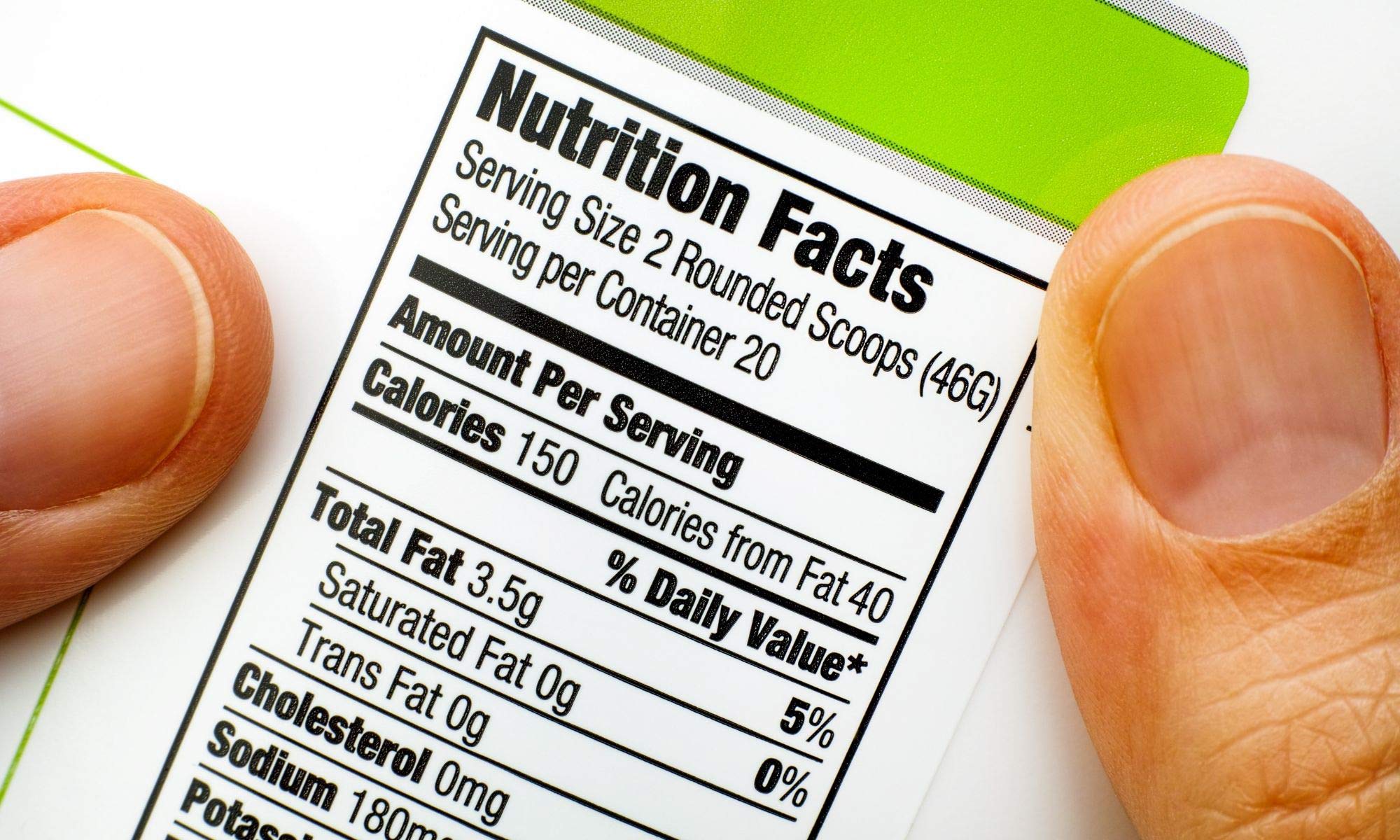
The United States has confirmed that tariffs on New Zealand exports will increase from 10 per cent to 15 per cent from 7 August, placing us alongside other key US trading partners including Japan and South Korea.
Trade and Investment Minister Todd McClay says, this decision appears to be based on a calculation of trade deficits, with countries running a surplus with the US moved to the higher rate. In New Zealand’s case, the surplus is modest, around US$500 million, and is not overly significant in the context of the US economy.
Over the past decade, our trade relationship with the US has seen periods where the US enjoyed a significant surplus and times, like now, when New Zealand has a modest one. Overall, our trade is balanced and complementary, reflecting the strength of a long-standing partnership.
“I am seeking an urgent call with the US Trade Representative to make New Zealand’s position clear: this increase risks harming exporters and consumers of both countries. The US currently faces an average tariff of just 0.8 per cent when exporting to New Zealand, far lower than what we face into their market,” Mr McClay says.
“New Zealand exports around $9 billion of goods to the US annually. At 15 per cent, the impact will be considerable for exporters, many of whom absorbed or passed on the earlier 10 per cent rate. At 15 per cent, that becomes much harder.
“Our focus now moves to engaging directly with the US on this current announcement to seek changes to this decision.
“New Zealand has always stood for open, rules-based trade. We will continue to advocate strongly for a resolution that supports our exporters and maintains the strength of our trading relationship with the United States.”

The New Zealand Government is investing over NZ$183 million in 19 science projects, including NZ$10 million for DeepHeat, a supercritical geothermal energy initiative in the Taupo Volcanic Zone.
Backed by the Endeavour Fund, these programmes aim to boost innovation, energy security, and economic growth, with research spanning AI, climate tech, healthcare, and aquaculture.
Ministers Reti and Jones highlight the potential for global breakthroughs and real-world impact through commercialisation and resilience-building.

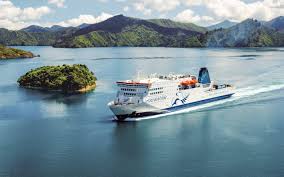
Ferry Holdings has selected a preferred shipbuilder (yet to be named) for two new Cook Strait ferries, marking a major milestone in a fast-tracked procurement process.
The 200-metre hybrid vessels will carry 1,530 passengers, vehicles and rail wagons, with delivery set for 2029.
Designed for safety, low emissions, and 30 years of service, the ferries reflect a return to cost-effective planning, avoiding billions in potential overspending. Final contracts are expected later this year.
Auckland Airport and Aviation Security are donating confiscated batteries from checked luggage to South Auckland communities via charities, diverting 145kg monthly from landfill.
Since August 2024, 95,000 batteries have powered toys, torches, and school projects. Batteries, which pose fire risks in aircraft holds, are the most confiscated item.
Travellers are urged to pack them in carry-on bags to ensure safety and avoid removal. Also, when flying in China your power bank must show the CCC label to avoid confiscation.


The team from the New Zealand Chamber of Commerce in Hong Kong (NZCCHK) recently attended the prestigious Asia Fruit Logistica trade fair, held at AsiaWorld-Expo.
This premier event brings together global leaders in the fresh produce industry, offering a dynamic platform for networking, innovation, and showcasing premium agricultural products.
During the visit, NZCCHK had the pleasure of meeting up with Corporate Gold Member Zespri, the world’s largest marketer of kiwifruit and a flagship brand of New Zealand’s horticultural sector. Zespri’s presence at the fair highlighted the strength and global appeal of New Zealand-grown kiwifruit, which continues to set the benchmark for quality, sustainability and taste.
Kiwifruit remains one of New Zealand’s most prized export products, renowned for its nutritional value and exceptional flavour. The current season is shaping up to be one of the strongest in recent years, with robust demand and expanding market reach across Asia and beyond. Export volumes are climbing steadily, driven by consumer preference for healthy, high-quality produce and Zespri’s commitment to excellence in cultivation and supply chain innovation.
The Chamber is proud to support members like Zespri who exemplify the best of New Zealand enterprise and continue to elevate the country’s reputation on the global stage.

China has unveiled its fourth list of 34 national-level memorial sites and 43 heroes commemorating the War of Resistance Against Japanese Aggression (193145), honouring overseas Chinese and international allies.
Among the sites included are a memorial park in Shandan county, Gansu province, dedicated to New Zealand-born writer Rewi Alley and British journalist George Aylwin Hogg, both of whom supported China during the war.
Over 100 overseas memorials exist, with 3,000 conservation projects completed.
New Zealand is launching the Business Investor Visa in November 2025 to attract experienced businesspeople.
It offers residence pathways via NZ$1 million (3-year) or $2 million (12-month fast-track) investments in existing businesses. The visa replaces the Entrepreneur Category and complements the Active Investor Plus visa.
It aims to boost jobs, incomes, and economic growth, with clearer, more efficient settings. A startup-focused visa is also in development to support innovative entrepreneurs and stimulate the economy.

China is ramping up efforts to boost inbound consumption, with foreign tourist numbers surpassing 19 million in the first half of the year and tax-refund shop sales rising 95%.
Over 7,200 such shops now operate nationwide. The Ministry of Commerce plans to enhance layouts, expand offerings, and improve services, while promoting diverse shopping, tourism, and cultural experiences.
Optimised tax refund policies and broader payment channels aim to enrich foreign visitors experiences and stimulate domestic economic growth.

Chinas Jiangmen Underground Neutrino Observatory (JUNO), the worlds largest transparent spherical detector, has begun operation after over a decade of development. With a 20,000-tonne liquid scintillator, JUNO aims to resolve neutrino mass ordering and explore fundamental physics.
Located 700 meters underground, it detects antineutrinos with record precision. Involving 700+ researchers globally, JUNO will study solar, atmospheric, and supernova neutrinos, and may probe proton decay and Majorana particles, advancing particle physics and cosmology over its 30-year lifespan.

China remains committed to boosting foreign trade despite global uncertainties and rising tariff barriers, which have disrupted supply chains and increased costs.
The Ministry of Commerce emphasised high-quality development and deeper international cooperation to counter these challenges. In the first seven months of 2025, Chinas goods trade reached CNY25.7 trillion (approx. USD3.6 trillion), growing 3.5% year-on-year, with momentum accelerating.
Officials reaffirmed Chinas readiness to expand high-standard opening up and collaborate with global partners.
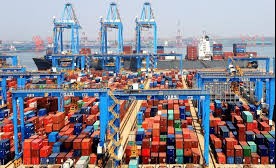
Te Herenga Waka - Victoria University of Wellington and Zhengzhou University have launched joint teaching through the Wellington Institute of Zhengzhou University, offering English-taught degrees in Architecture, Landscape Architecture, and Industrial Design.
Students earn dual degrees, with teaching led by both universities.
The partnership fosters cross-cultural exchange, global perspectives, and future collaboration in postgraduate study, research, and industry.
With over 70,000 students, ZZU brings scale and prestige, while Te Herenga Waka contributes innovation in design education.
Opportunities for study in Wellington are expanding, reinforcing a thriving, mutually beneficial relationship between New Zealand and China.








